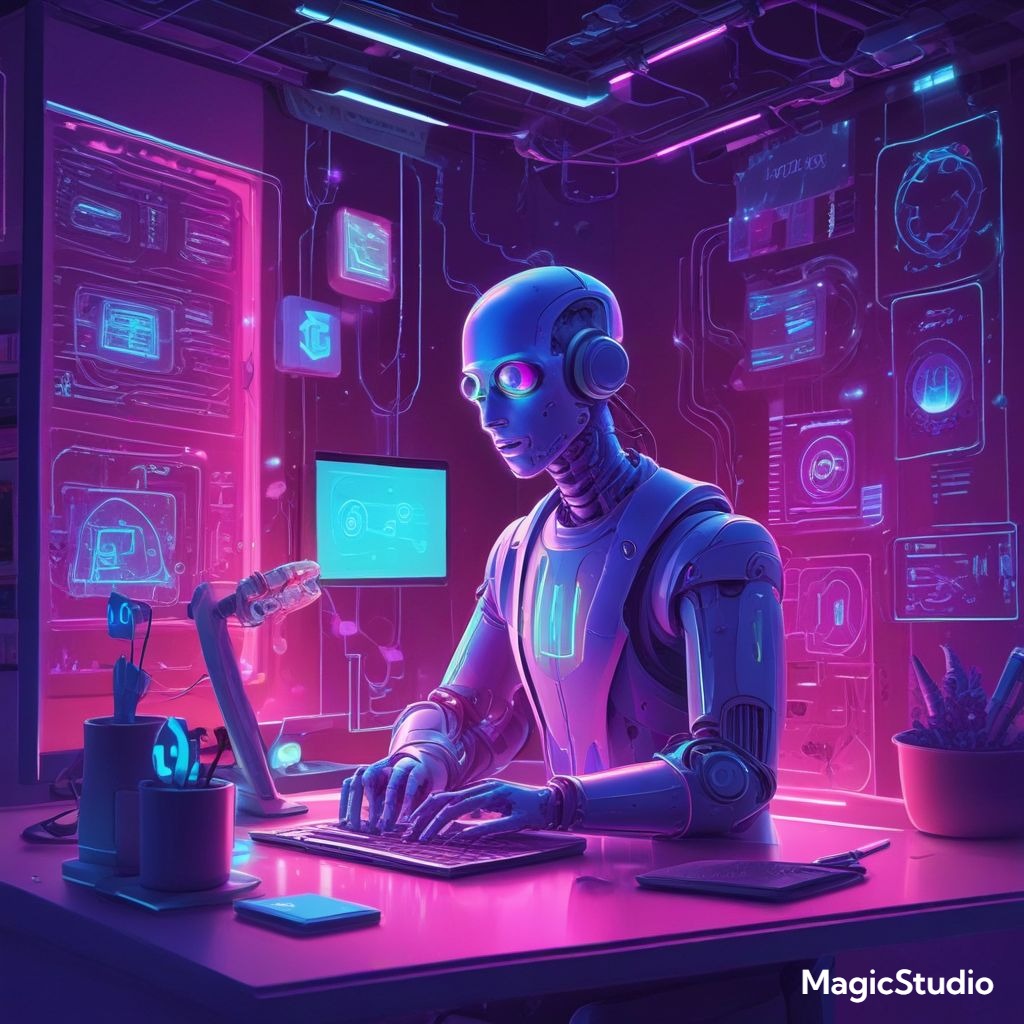In today’s fast-paced digital world, businesses must adapt to ever-changing customer expectations. The rise of artificial intelligence (AI) and chatbots has revolutionized customer engagement, making interactions faster, more efficient, and highly personalized.
Whether you run an e-commerce store, a SaaS company, or a service-based business, AI-powered solutions can enhance customer satisfaction, streamline operations, and boost conversions. In this article, we’ll explore how AI & chatbots are reshaping the customer experience and what businesses can do to leverage this technology.
1. 24/7 Customer Support Without Human Limitations
Customers expect instant responses, regardless of the time of day. AI-driven chatbots provide round-the-clock customer service, addressing inquiries without the need for human intervention. Unlike human agents, chatbots don’t require breaks, ensuring consistent customer support at any hour.
Key Benefits:
- Immediate response to customer queries
- Reduced wait times
- Increased efficiency for support teams
For example, brands like Amazon and Sephora utilize AI chatbots to offer real-time assistance, improving customer satisfaction while reducing operational costs.
2. Hyper-Personalization Through AI-Powered Insights
AI technology analyzes vast amounts of customer data to deliver personalized experiences. By tracking customer interactions, preferences, and behaviors, AI-driven systems suggest tailored recommendations, enhancing engagement.
How AI Achieves This:
- Predictive analytics to anticipate customer needs
- Personalized product recommendations
- Automated email and chatbot responses based on past interactions
Netflix and Spotify are excellent examples of AI personalization in action. Their recommendation engines analyze user activity to provide customized content suggestions, keeping audiences engaged.
3. Streamlining Sales & Lead Generation
AI chatbots are increasingly used for lead generation and sales automation. They qualify leads by asking relevant questions and directing potential customers to the right products or services. This significantly improves conversion rates while saving valuable time for sales teams.
AI-Powered Sales Strategies Include:
- Automated lead qualification
- Chatbot-driven upselling and cross-selling
- AI-assisted appointment scheduling
For instance, Drift and Intercom use AI chatbots to nurture prospects, ensuring smooth customer journeys and higher sales conversions.
4. Reducing Customer Support Costs
Businesses can significantly cut costs by deploying AI chatbots to handle repetitive customer inquiries. Instead of expanding human support teams, companies can rely on AI to manage common questions, leaving human agents to focus on complex issues.
Cost-Saving Benefits of AI Chatbots:
- Lower operational expenses
- Reduced need for large customer support teams
- Improved resource allocation
According to Juniper Research, chatbots are expected to save businesses over $8 billion annually by 2025. Investing in AI chatbots is not just about improving customer engagement—it’s a smart financial move.
5. Enhancing Omnichannel Engagement
Modern consumers interact with brands across multiple channels, including websites, social media, and messaging apps. AI-powered chatbots ensure seamless engagement by integrating across these platforms, delivering a unified customer experience.
Omnichannel Chatbot Strategies:
- AI chatbots for social media (Facebook Messenger, WhatsApp, Instagram)
- Integration with live chat and email support
- Consistent brand messaging across all touchpoints
Businesses using AI to maintain consistency across customer interactions see improved retention and brand loyalty.
6. Sentiment Analysis for Better Customer Understanding
AI-driven sentiment analysis helps businesses gauge customer emotions by analyzing text, voice, and social media interactions. Understanding customer sentiment allows brands to refine their messaging and improve service quality.
Practical Applications of AI Sentiment Analysis:
- Identifying customer pain points through chatbot conversations
- Monitoring social media mentions and customer reviews
- Adapting responses based on real-time feedback
Companies like HubSpot and Salesforce integrate sentiment analysis into their AI-driven customer engagement strategies, offering deeper insights into customer satisfaction.
7. AI-Powered Virtual Assistants & Voice Search Optimization
Virtual assistants like Siri, Alexa, and Google Assistant are transforming the way consumers interact with businesses. As voice search grows, optimizing for AI-driven voice interactions is crucial for brands looking to stay ahead.
AI & Voice Search Trends:
- Optimizing content for voice queries
- AI-powered virtual assistants for customer inquiries
- Seamless integration with smart devices
For digital marketers, an Advanced Digital Marketing Course can help professionals master AI tools and strategies for optimizing content in the era of voice search.
Conclusion: The Future of AI & Chatbots in Customer Engagement
AI & chatbots are no longer futuristic concepts—they are essential tools in modern customer engagement. From enhancing personalization and automating sales to improving support and reducing costs, AI-driven solutions are redefining the customer experience.
As AI tools for digital marketing continue to evolve, businesses that embrace this technology will gain a competitive advantage. Whether you’re a startup or an established enterprise, leveraging AI chatbots can streamline operations, increase conversions, and enhance customer satisfaction.
Are you ready to integrate AI into your customer engagement strategy? Now is the time to explore AI-powered solutions and stay ahead in the digital landscape.

